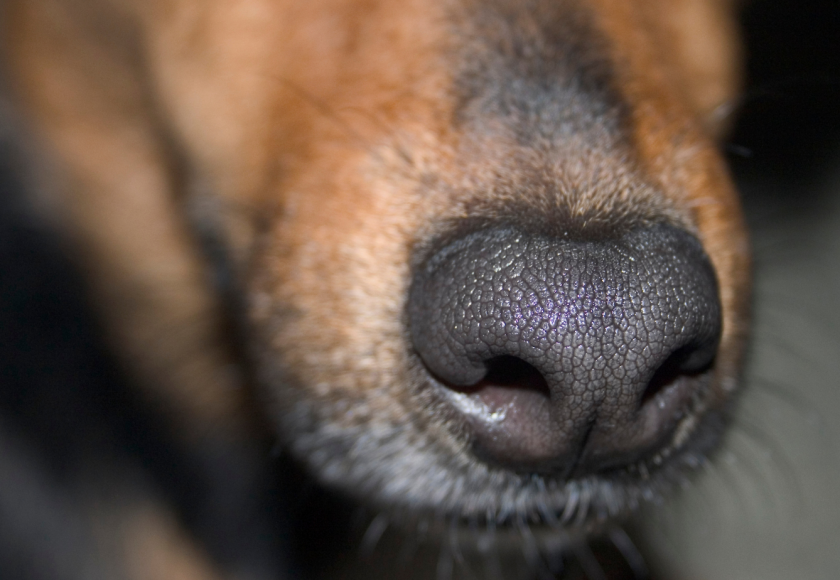Dog owners often become concerned when their dog scratches excessively. This can be normal behavior, but when a dog scratches excessively, the situation can become alarming. Dogs may scratch for a variety of reasons, including instinctive behavior patterns, physical needs, or skin conditions.
Scratching is natural behavior for dogs and is often associated with their early instincts, such as shedding excess fur after the cold season when the weather warms up. Dogs often scratch due to parasites on their skin and coat, such as fleas, lice, mites, and ticks.
When a dog is scratching but there are no fleas, it is important to identify another possible cause of itching. This situation may arise due to dog allergies, which are a fairly common problem among dogs.
- Allergies can be related to food, environmental factors such as pollen or dust mites, or chemicals used in the home.
- Another possible cause is skin infections, which can be caused by bacteria or fungi, especially if the skin is damaged.
- In addition, hormonal disorders such as hypothyroidism can also cause skin problems. If your dog is constantly scratching but there are no fleas, it is important to consult a veterinary clinic.

A specialist can perform the necessary tests, such as a skin biopsy or allergy tests, and select the appropriate treatment. While waiting for the diagnosis, it is important to monitor your dog’s behavior and avoid potential allergens to prevent further irritation.
Table of contents
Possible reasons why your dog is scratching
1. Allergies
One of the most common reasons why dogs scratch is allergies. Dogs can be allergic to food, environmental allergens such as pollen or dust mites, or chemicals found in the environment, laundry detergents, or household cleaners.
Symptoms can vary, including intense scratching, redness of the skin, and even hair loss. In cases of environmental allergies, especially pollen allergies, dogs may be more likely to scratch their snouts, have watery eyes, sneeze, and have a runny nose.
2. Parasites
Another common cause of scratching is parasites such as fleas, ticks, and lice. Even a small number of fleas can cause severe itching, especially if the dog is allergic to flea bites.
In addition, some parasites may be the reason why your dog is scratching and shedding. If your dog is scratching but there are no fleas, it is worth checking for other parasites that may not be visible to the naked eye.
3. Skin diseases
Bacterial and fungal skin diseases in dogs can also cause intense scratching. These infections usually occur when the skin barrier is compromised, for example due to scratches or allergies.
Skin infections can be complex and often require veterinary care to determine the exact diagnosis and appropriate treatment. The specialists at the Begemotas Veterinary Clinic in Vilnius perform all skin tests, microscopic analysis, and, if necessary, biopsies to determine the type of infection.
4. Hormonal disorders
Hormonal disorders such as hypothyroidism or Cushing’s syndrome can affect the condition of the skin and may be the reason why your dog is scratching and shedding. These hormonal disorders affect metabolism and skin regeneration, causing the skin to become dry and the dog to start scratching.
In such cases, veterinary dermatologist Milda Vasaitytė can perform blood and other necessary tests to check the hormone levels in your dog’s body and determine the appropriate diagnosis and treatment.

Why does a dog scratch its ear?
When a dog scratches its ear, it may be a sign of ear health problems. The most common reasons for dogs scratching their ears are dog ear diseases, which can be bacterial, parasitic, or fungal in origin.
- Dogs with long, drooping ears are more prone to such problems due to poor air circulation.
- Other possible causes of ear itching include ear mites or allergic reactions.
- If you notice that your dog is frequently scratching its ear, shaking its head, or emitting an unpleasant odor from its ear, it is important to consult a veterinarian as soon as possible.
A veterinarian can examine the ear and perform the necessary tests to determine the exact cause and prescribe the appropriate treatment, which may include ear cleaning, topical medications, or antibiotics. While you wait for the consultation, avoid cleaning your dog’s ears yourself, as this may worsen the situation or damage the ear canal.
Kada reikėtų kreiptis į veterinarijos kliniką?
Jei pastebite, kad jūsų šuo kasosi ir barsto plaukus, arba jei jūsų šuo kasosi pernelyg intensyviai ir tai trunka ilgiau nei keletą dienų, turėtumėte kreiptis į veterinarijos kliniką.
The Begemotas Veterinary Clinic offers a comprehensive examination and treatment plan, which may include skin tests, blood tests, allergy tests, and other diagnostic methods to determine the exact cause and begin the most appropriate and effective treatment.

Is dog scratching curable?
If your dog is scratching, the best treatment options should be selected by an experienced dermatologist, depending on the cause of the scratching. Here are some of the most common solutions used in veterinary clinics:
- Allergy management. If your dog is found to be allergic to certain foods or environmental factors, veterinarian-dermatologist Milda Vasaitytė can recommend a special diet and medication. It is important to identify and avoid the allergen in order to prevent further reactions to the allergen that causes the dog to scratch.
- Parasite control. If the dog is scratching due to parasites such as fleas or ticks, veterinarians may prescribe special antiparasitic preparations. It is also necessary to eliminate parasites in the dog’s environment to prevent reinfection.
- Treatment of skin diseases. Bacterial and fungal infections are treated with antibiotics or antifungal medications. These may be topical preparations or systemic medications, depending on the severity of the infection and the causative agent.
- Correction of hormonal imbalance. Hormonal disorders, such as hypothyroidism, are treated with drugs that normalize hormone levels in the body. This helps restore normal skin condition and reduces scratching.
How to prevent your dog from scratching?
- Regular bathing and grooming. Use a gentle dog shampoo and brush your dog’s coat regularly. This helps remove dirt and reduces the risk of parasites.
- Healthy diet. Ensure your dog has a balanced diet that supports good skin and coat condition. This may include supplements with omega-3 fatty acids, which help maintain skin moisture.
- Avoid allergens. If you know your dog is allergic to certain things, try to avoid them. This might include removing allergenic foods from their diet or controlling environmental allergens.
- Regular visits to the vet. Have your dog’s health checked regularly by a veterinarian to identify and address potential problems early on.
If you notice that your dog is scratching a lot, always check its coat for fleas or other “residents.” If your dog is scratching but there are no fleas or other parasites, it may be due to health problems, food or environmental allergies, or itching caused by other skin diseases.
If your dog is scratching, or even scratching and shedding, this could be a serious problem that requires careful attention and proper treatment. The Begemotas Veterinary Clinic in Vilnius, with experienced veterinarian Milda Vasaityte, is ready to help identify the cause of the problem and offer effective solutions.
A caring and responsible approach to your pet’s health ensures a happy and healthy life for your beloved dog, so register now.





